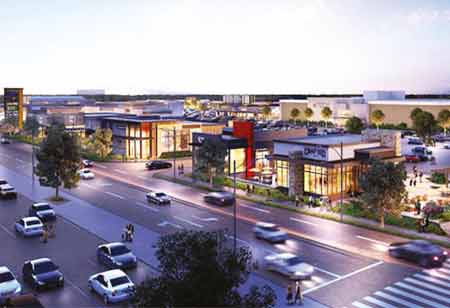Thank you for Subscribing to Construction Business Review Weekly Brief

Innovations in the Construction Industry
For the second consecutive year, the construction sector has been experiencing above-average growth in the South American region. The Brazilian Chamber of the Construction Industry (CBIC) anticipates a 4.5 percent market growth, driven by stable construction material prices and the country's economic improvement, instilling confidence in consumers and influencing property sales and new financing opportunities.
Due to rapid urbanization and population growth, the residential sector in Latin America is continually expanding. Various forms of residential housing, including skyscrapers and small and medium-sized houses, have become more common due to innovation and advancements in the construction industry.
In line with this trend, there is a need for investment and development of both basic and advanced infrastructure to support the new urban centers.
Looking at the period during and after the pandemic, from 2020 onward, we have observed that small renovations and residential constructions have gained prominence. It is clear that the primary trends in construction innovation for the next decade revolve around technology, environmental concerns, and the pursuit of a better quality of life for both construction teams and the end users of the projects.
Innovation in the construction industry is closely tied to the knowledge and skills of professionals, becoming a significant differentiator for the sector in the 2023-2026 triennium. It will manifest in well-known trends that are expected to see broader adoption, such as the use of drywall, eco-friendly paints, bricks, steel structures, and more.
So, the civil construction industry, commonly recognized as an environment for hiring low-skilled workers, is undergoing a significant transformation: there is an increasing need to develop a qualified workforce. Some of the innovative trends with the potential to reshape the real estate and construction markets in the coming years in the region include:
• Smart Cities;
• 3D Printing: Technology with applications in rapid prototyping and custom construction components;
• Artificial Intelligence: AI is being used for project optimization, project management, and safety improvements.
• Internet of Things (IoT): IoT applications can enhance building and infrastructure monitoring and maintenance.
• Eco-friendly materials - cables, bricks, concrete: Sustainable construction materials are in high demand.
• Augmented Reality: AR assists in project visualization and on-site guidance.
• Building Information Model (BIM): BIM is essential for project design and coordination.
Innovation in the construction industry is closely tied to the knowledge and skills of professionals
Workforce qualification is already one of the primary challenges, as highly skilled professionals are required to master these technologies. This includes not only engineers, architects, and administrators but also a new generation of masons, carpenters, electricians, plumbers, and more. They will need to deal not only with new technologies but also with cost-effectiveness and project completion punctuality, particularly within the concept of ‘Lean Construction’: an approach that focuses on reducing waste and increasing efficiency in the construction process.
In the face of a shortage of qualified labor in the market, companies are heavily investing in education and training. Common solutions in other industries, such as corporate universities or online training networks, have become a reality in the construction industry. Language education at the operational level is beginning to become a reality. This has demanded efforts and investments not only in training workers on construction sites but also in reshaping the management model of these companies since a new category of highly qualified and self-aware employees at the operational base is emerging.
This is a transformation that was seen in the last decade in agriculture, once manual and now highly automated, and it is coming to perhaps the last major sector of the economy - construction.
In this regard, as we advance into the era of smart cities, sustainable construction materials, and advanced technologies, the industry must invest in the training and development of its workforce to address the challenges and opportunities ahead. This commitment to workforce qualification will not only benefit the construction sector but also contribute to global economic growth and regional development.








